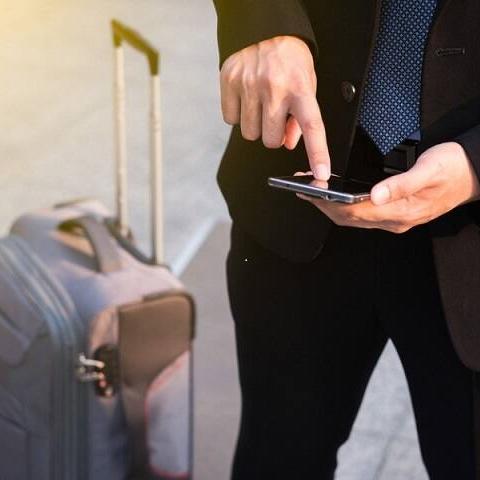Travel and Expense
Is Transforming Business Travel a Big Deal for SMBs?
Sure, you might not have thousands of salespeople and execs jetting off around the world every day, but it’s not like your travel budget consists of the contents of your petty cash tin. You may be spending plenty on domestic car mileage, trains, car rentals, hotels, and incidentals, and if you’re not on top of what’s going out the door, who’s travelling, and what you're doing to keep everyone safe and productive, you’re putting your travellers and your company at risk.
It’s a fairly big deal.
Travel is a harbinger of business momentum (think of those salespeople out there drumming up business, and the account execs out there keeping it), and if there’s faith in your travel plan, that breeds confidence in your business strategy.
Transforming how you travel, therefore – or at least making sure things are up to date – becomes a critical component of competing in a post-pandemic economy. Because the way you manage expenses, the way you manage trips, the way you manage travellers and duty of care is under tighter scrutiny than ever.
Pent Up Demand
Other than the fact that no one’s really gone anywhere in over a year, what’s really changed in corporate travel? To start, there’s tremendous pent-up demand. According to a recent traveller survey outlined in this eBook, 95% of travellers in companies under 1,000 employees are willing to travel again, and 63% are very willing.
Yes, travel is in various states of reprisal around the world, but you still need to get ready to go – and ready for travellers new demands. Because even though they’re eager to reaffirm their relationships with far-flung customers, their attitudes have changed, and they have a few caveats. Safety, naturally, is one of their top concerns, and they want the freedom to be able to plan their trips in the way that feels safest for them.
That might mean taking a car, rather than taking public transportation. Or it could mean accepting a firm “no” when someone doesn’t feel good about going to a specific city, country, or region.
But what it really means is flexibility, and that might be the biggest change of all. According to the eBook, you’ll want to make sure your travelling employees have the ability to adjust their travel if need be, and they’ll want the ability to book directly with suppliers. Over two-thirds of them, in fact, want their company to loosen restrictions to allow for better, flexibility-oriented policies.
Protecting Travellers and the Planet
If flexibility and safety are key, sustainability is now just as important. In yet another change to business travel, you can’t just fly around the world anymore or grab a quick train to Helsinki, you have to address your emissions impact. And your travellers are going to want tools and technologies that help them track, and ultimately reduce, their carbon footprint. 60% of business travellers, in fact, expect to make changes that improve travel sustainability, and they’re going to expect your organisation to follow suit.
It’s a whole new world of travel, and it’s going to require a whole new travel plan. That is a transformation, and yes, that’s a big deal, but it doesn’t have to be overwhelming or impossible – even for companies your size.
Read the eBook to see how it’s done.
